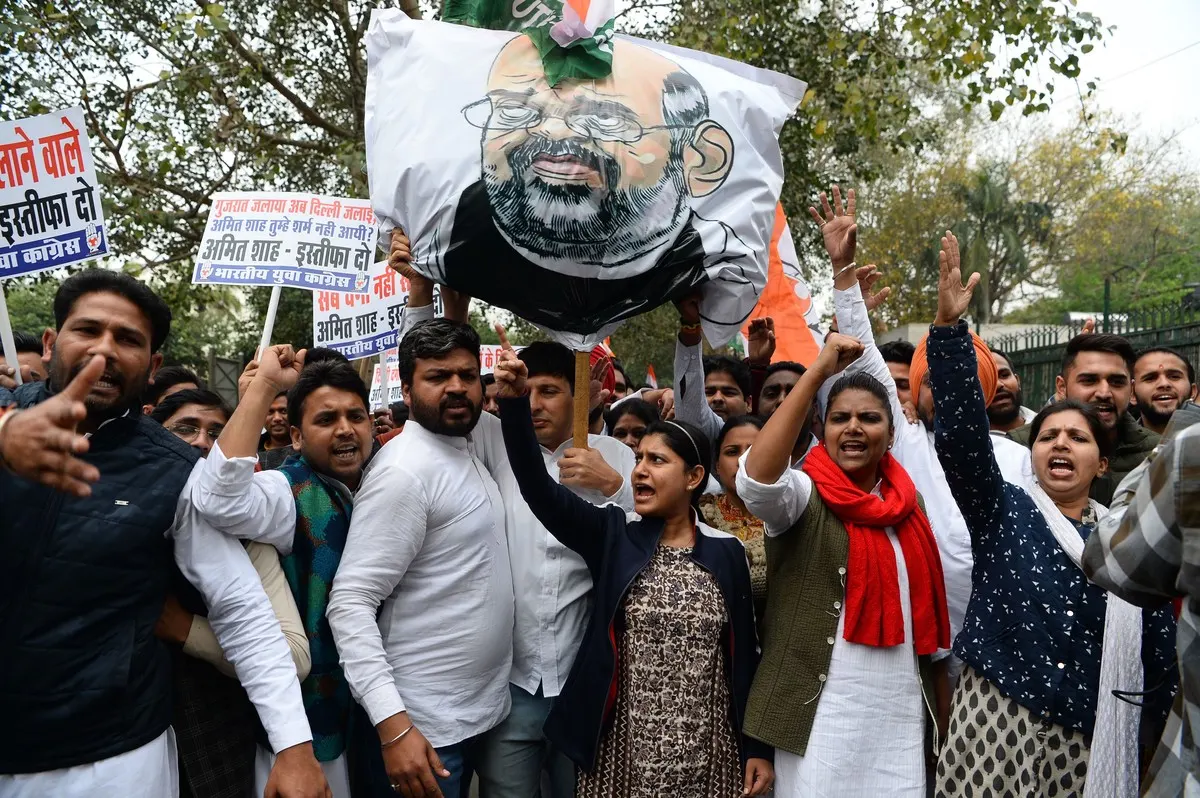11/02/2025
11/02/2025

NEW DELHI, India, Feb 11: India’s religious minorities have experienced a “staggering” increase in hate speech over the past year, with a significant rise in incidents targeting Muslims and Christians, according to a report released Monday.
The report, from the Washington-based research group India Hate Lab, found that hate speech incidents aimed at Muslim and Christian minorities surged to 1,165 in 2024, up from 668 in the previous year, marking a 74% increase. The vast majority of these incidents, about 98%, targeted Muslims, either exclusively or alongside Christians.
“Hate speech in India in 2024 followed an alarming trajectory, deeply intertwined with the ideological ambitions of the ruling Bharatiya Janata Party (BJP) and the broader Hindu nationalist movement,” the report stated.
Prime Minister Narendra Modi, who secured a third term in last year’s elections, has long been criticized for fostering religious tensions and inciting violence against Muslims and other minorities since coming to power over a decade ago. Critics argue that Modi’s Hindu nationalist party aims to transform India—a nation constitutionally committed to secularism—into a Hindu homeland, sidelining millions who belong to minority faiths.
Modi and the BJP have consistently denied accusations of discrimination against minority groups.
In response to the report, BJP national spokesperson Jaiveer Shergill condemned the findings, calling them an attempt to tarnish India’s image.
“India as a nation has a very strong legal system which is structured to maintain peace, order and ensure non-violence at any cost,” Shergill told CNN. “Today’s India does not need any certification from any ‘anti-India reports industry’ which is run by vested interests to prejudice and dent India’s image.”
The report indicated that hate speech last year amplified “longstanding Hindu nationalist tropes,” depicting Muslims and Christians as “outsiders,” “foreigners,” and “invaders” with no legitimate claim to India.
The BJP was responsible for organizing around 30% of last year’s hate speech incidents, a nearly six-fold increase from the previous year. Party leaders delivered 452 hate speeches, a 350% rise from the prior year, with most of them occurring during the general election campaign.
Modi has previously been accused of making Islamophobic remarks during his campaign speeches.
“These high-profile hate speeches (by Modi and powerful regional leaders) were further amplified and reinforced by an arsenal of local BJP leaders, Hindu far-right organizations, and religious figures, who spread similar rhetoric at community and grassroots levels,” the report found.
India’s Muslim population stands at around 200 million, while Christians make up approximately 27 million of the 1.4 billion people in the country.
Under Modi’s leadership, Hindu nationalists have been appointed to key government positions, allowing them to push through legislation that rights groups argue unfairly targets Muslims. Textbooks have been rewritten to downplay the history of India’s Islamic rulers, cities and streets with Mughal-era names have been renamed, and Muslim properties have been demolished by authorities for illegal encroachment on government land or as punishment for alleged rioting.
In 2019, Modi revoked the special autonomy of Jammu and Kashmir, India’s only Muslim-majority state, bringing it under direct control of New Delhi. That same year, his government passed a controversial citizenship law that excluded Muslim migrants, sparking deadly riots.
India’s penal code prohibits hate speech, criminalizing “deliberate and malicious acts” intended to insult religious beliefs. However, some experts argue that the judiciary’s reluctance to recognize and act on hate speech offenses has contributed to the problem’s growth.
Anas Tanwir, a lawyer and founder of the Indian Civil Liberties Union, said the judiciary has failed to take meaningful action against hate speech, “despite clear prohibitions under various laws in India.”
The India Hate Lab, a project of the Washington, D.C.-based Center for the Study of Organized Hate (CSOH), publishes annual data on hate speech in India. The group defines hate speech according to the United Nations framework, which covers any form of communication that attacks or uses discriminatory language based on religion.


